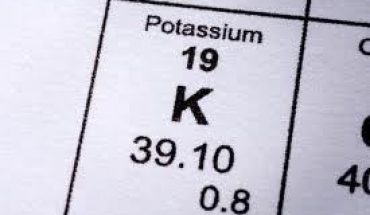Maintaining a healthy body weight is important to an overall healthy life, but how do we measure our ideal weight? One common way is to measure it against your height. For persons of every stature, there is an ideal weight for height.
First of all, when we speak of ideal weight for height, we’re speaking specifically in accordance to accepted medical standards. The medical standard is commonly expressed by Body Mass Index.
Body Mass Index (BMI)
BMI can be calculated by using one of two formulas. The English BMI formula which uses your weight in pounds and your height in inches, or the Metric BMI Formula which uses your weight in kilograms and your height in meters.
English BMI formula
BMI= (weight in pounds/(height in inches)x(height in inches)) x 703
Metric BMI formula
BMI= weight in kilograms/(height in metres) x ( height in meters)
After calculating your BMI, you check it against a classified scale which will show where you stand regarding your weight. If you are in the normal range this represents your ideal weight for height.
BMI Classification Scale
18.5 or less Underweight
18.5 to 24.99 Normal
25-29.99 Overweight
30-34.99 Level 1 Obesity
35 -39.99 Level 2 Obesity
40 and over Morbidly Obese
It is important to note that BMI is relative. Every body type is different. It is also important to note that men and women differ. A male body contains more muscle mass than a female?s (muscle weighs more than fat) and thus he will weigh more for his height.
Another way of finding the ideal weight for height takes the body type into consideration. Below are weight charts for women and men based on height and frame.
| Height | Small Frame | Medium Frame | Large Frame |
| 4’10” | 102-111 | 109-121 | 118-131 |
| 4’11” | 103-113 | 111-123 | 120-134 |
| 5’0″ | 104-115 | 113-126 | 122-137 |
| 5’1″ | 106-118 | 115-129 | 125-140 |
| 5’2″ | 108-121 | 118-132 | 128-143 |
| 5’3″ | 111-124 | 121-135 | 131-147 |
| 5’4″ | 114-127 | 124-138 | 134-151 |
| 5’5″ | 117-130 | 127-141 | 137-155 |
| 5’6″ | 120-133 | 130-144 | 140-159 |
| 5’7″ | 123-136 | 133-147 | 143-163 |
| 5’8″ | 126-139 | 136-150 | 146-167 |
| 5’9″ | 129-142 | 139-153 | 149-170 |
| 5’10” | 132-145 | 142-156 | 152-173 |
| 5’11” | 135-148 | 145-159 | 155-176 |
| 6’0″ | 138-151 | 148-162 | 158-179 |
| Height | Small Frame | Medium Frame | Large Frame |
| 5’2″ | 128-134 | 131-141 | 138-150 |
| 5’3″ | 130-136 | 133-143 | 140-153 |
| 5’4″ | 132-138 | 135-145 | 142-156 |
| 5’5″ | 134-140 | 137-148 | 144-160 |
| 5’6″ | 136-142 | 139-151 | 146-164 |
| 5’7″ | 138-145 | 142-154 | 149-168 |
| 5’8″ | 140-148 | 145-157 | 152-172 |
| 5’9″ | 142-151 | 148-160 | 155-176 |
| 5’10” | 144-154 | 151-163 | 158-180 |
| 5’11” | 146-157 | 154-166 | 161-184 |
| 6’0″ | 149-160 | 157-170 | 164-188 |
| 6’1″ | 152-164 | 160-174 | 168-192 |
| 6’2″ | 155-168 | 164-178 | 172-197 |
| 6’3″ | 158-172 | 167-182 | 176-202 |
| 6’4″ | 162-176 | 171-187 | 181-207 |
A simple way to figure out your frame size is to wrap your index finger and thumb around your wrist. If the two fingers overlap, then you have a small frame, if they just touch at the tips then you have a medium frame, and if they cannot meet then you have a large frame.
These figures (BMI and weight according to height and frame) only relate to adults; as children’s growth is erratic, their ideal weight for height is much more difficult to pinpoint.





